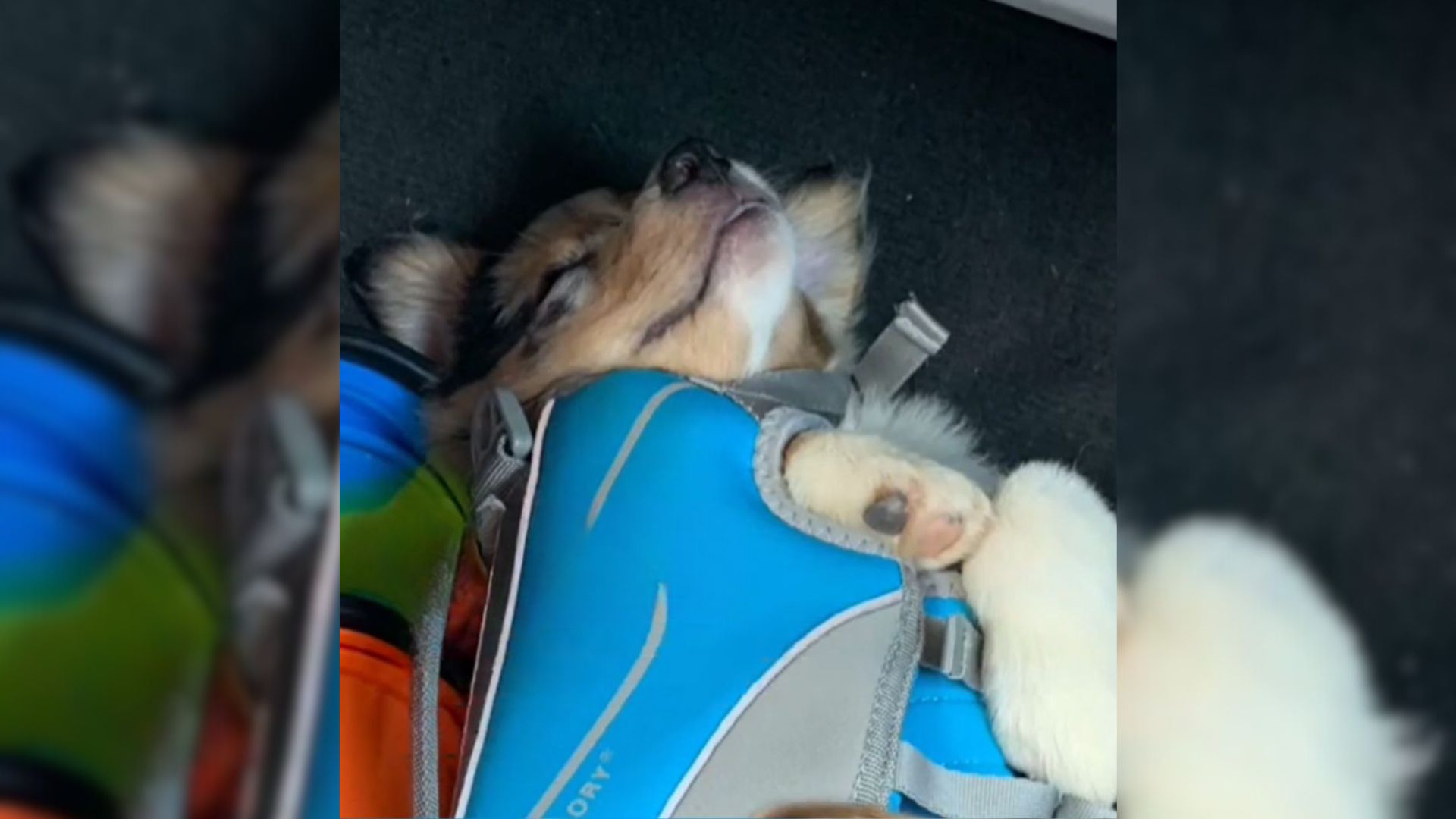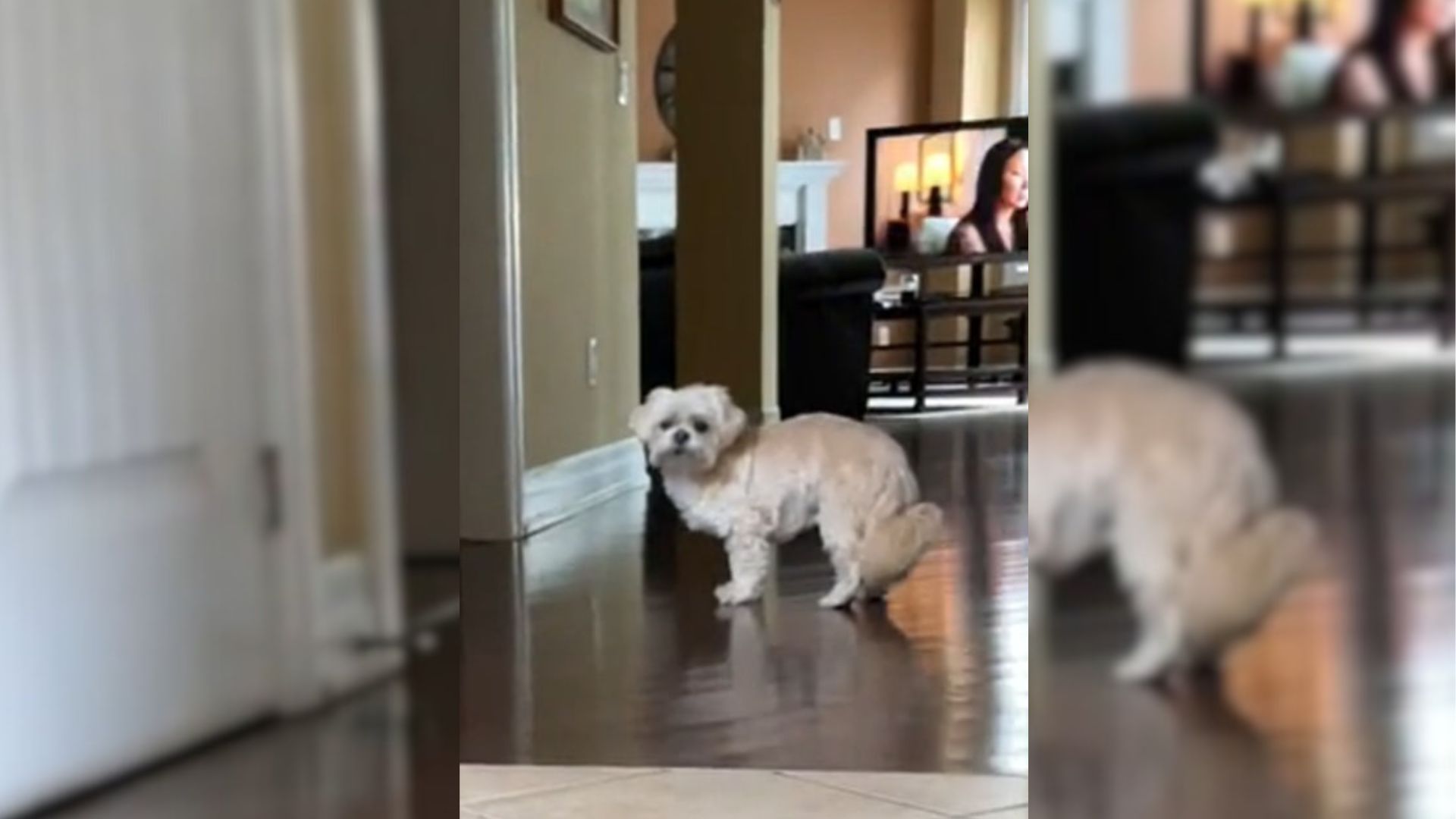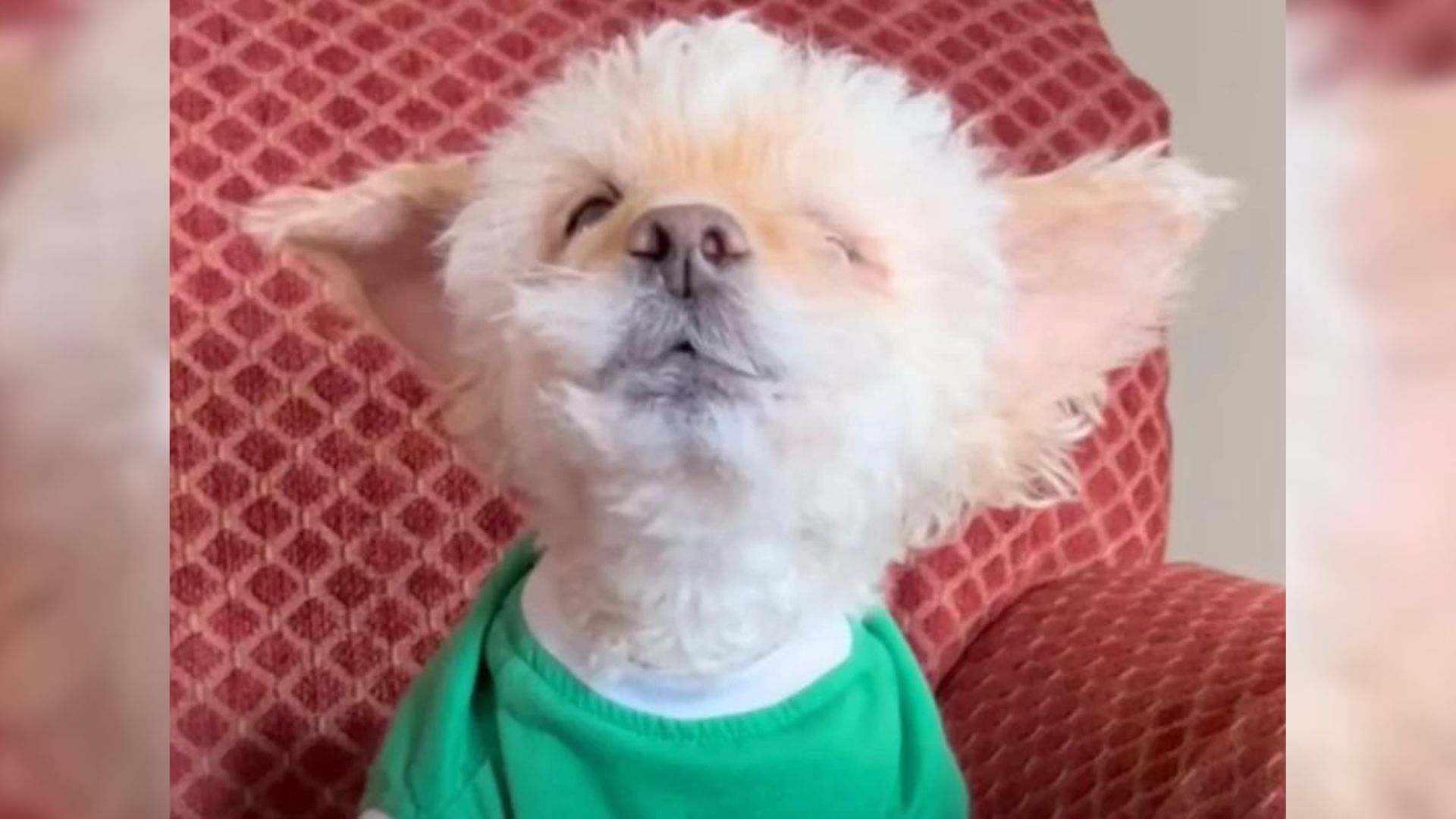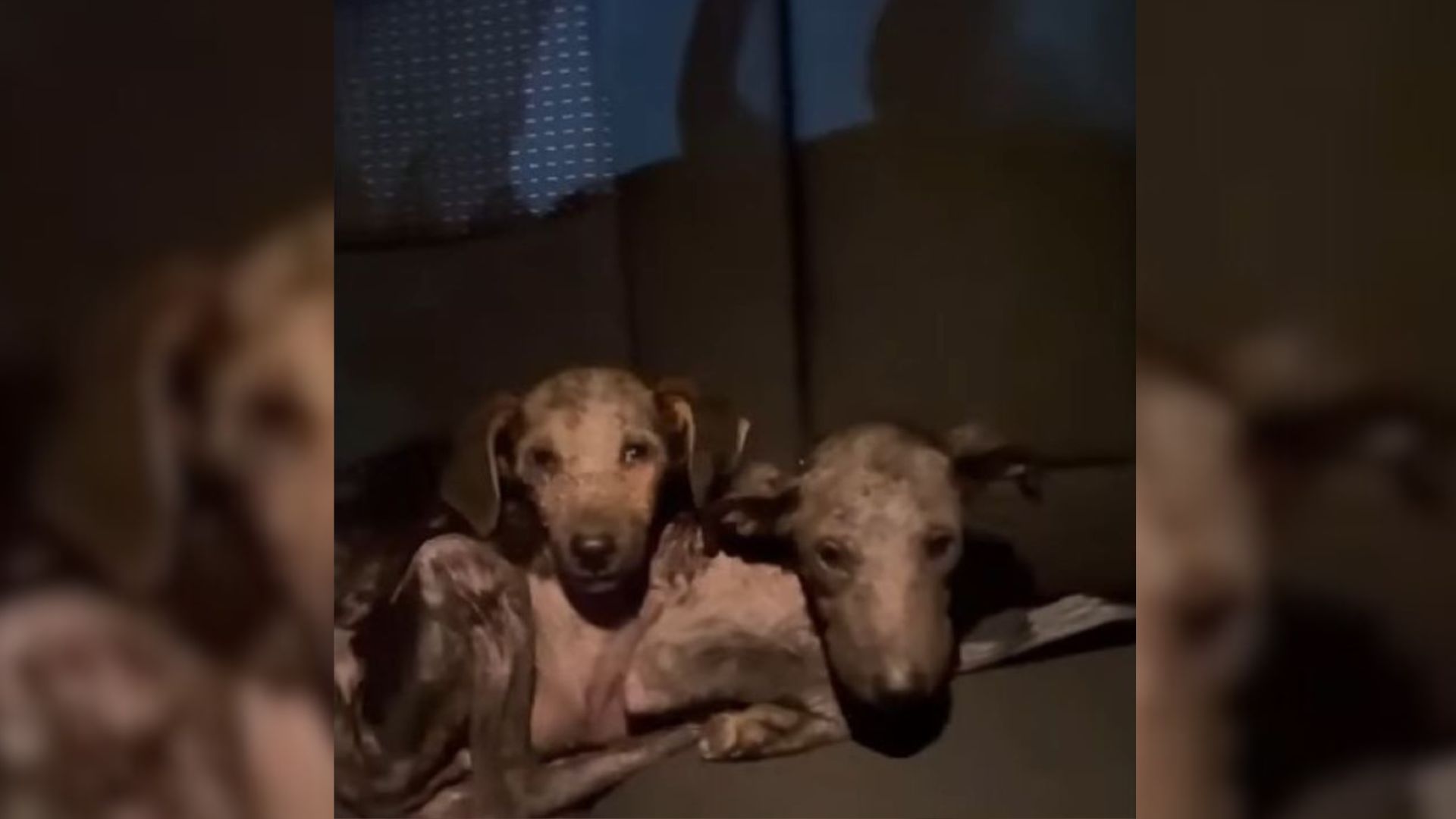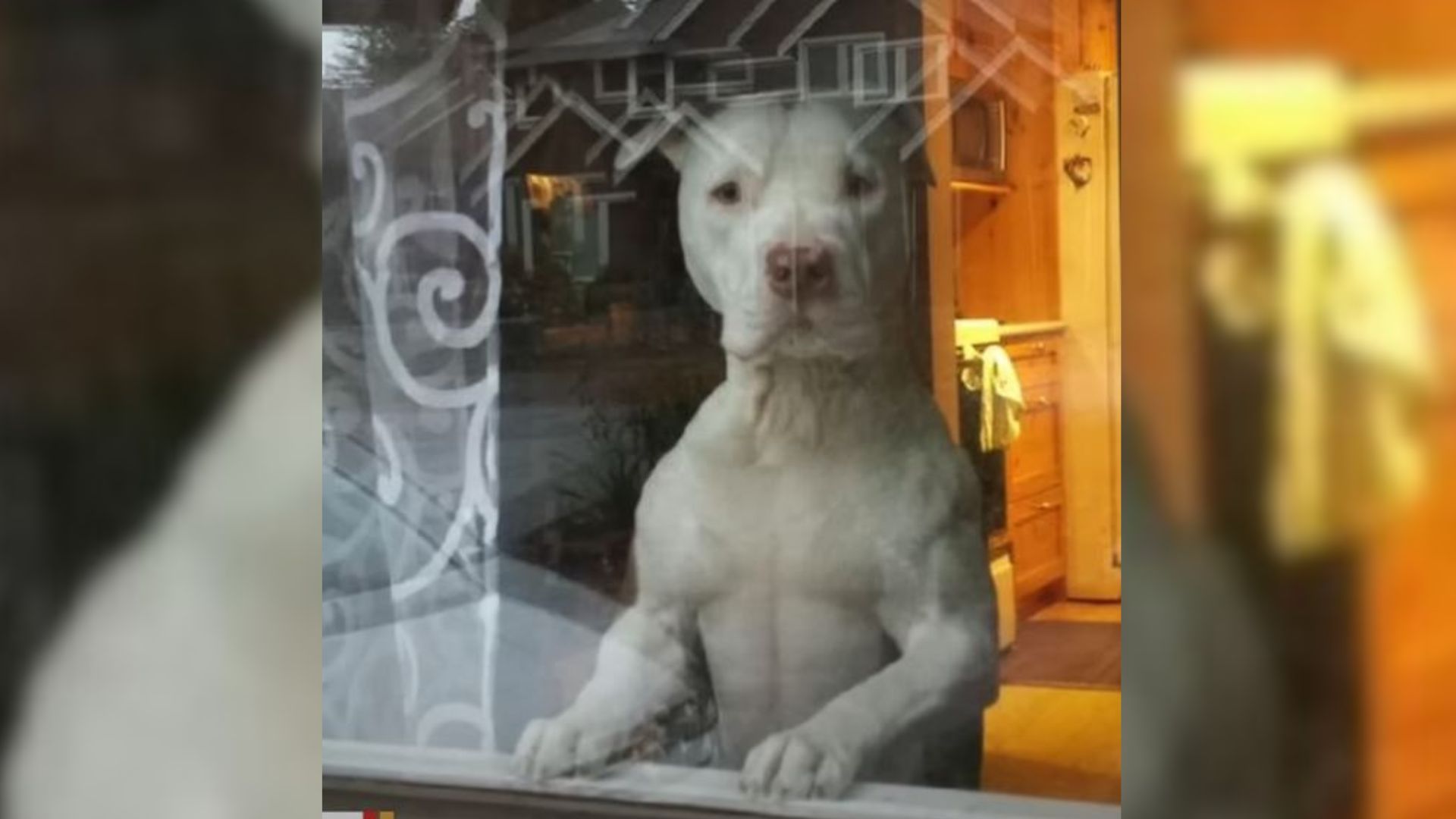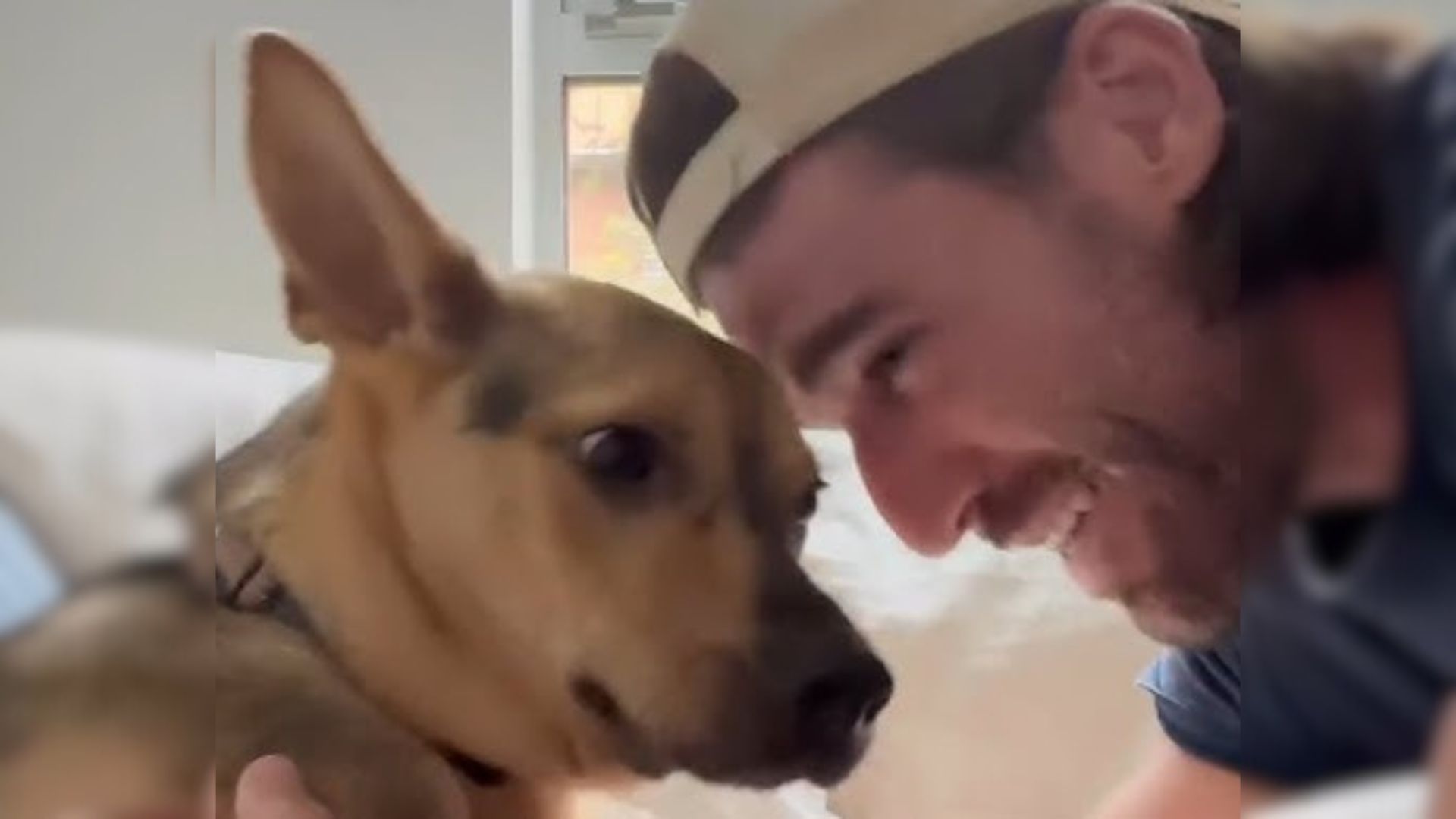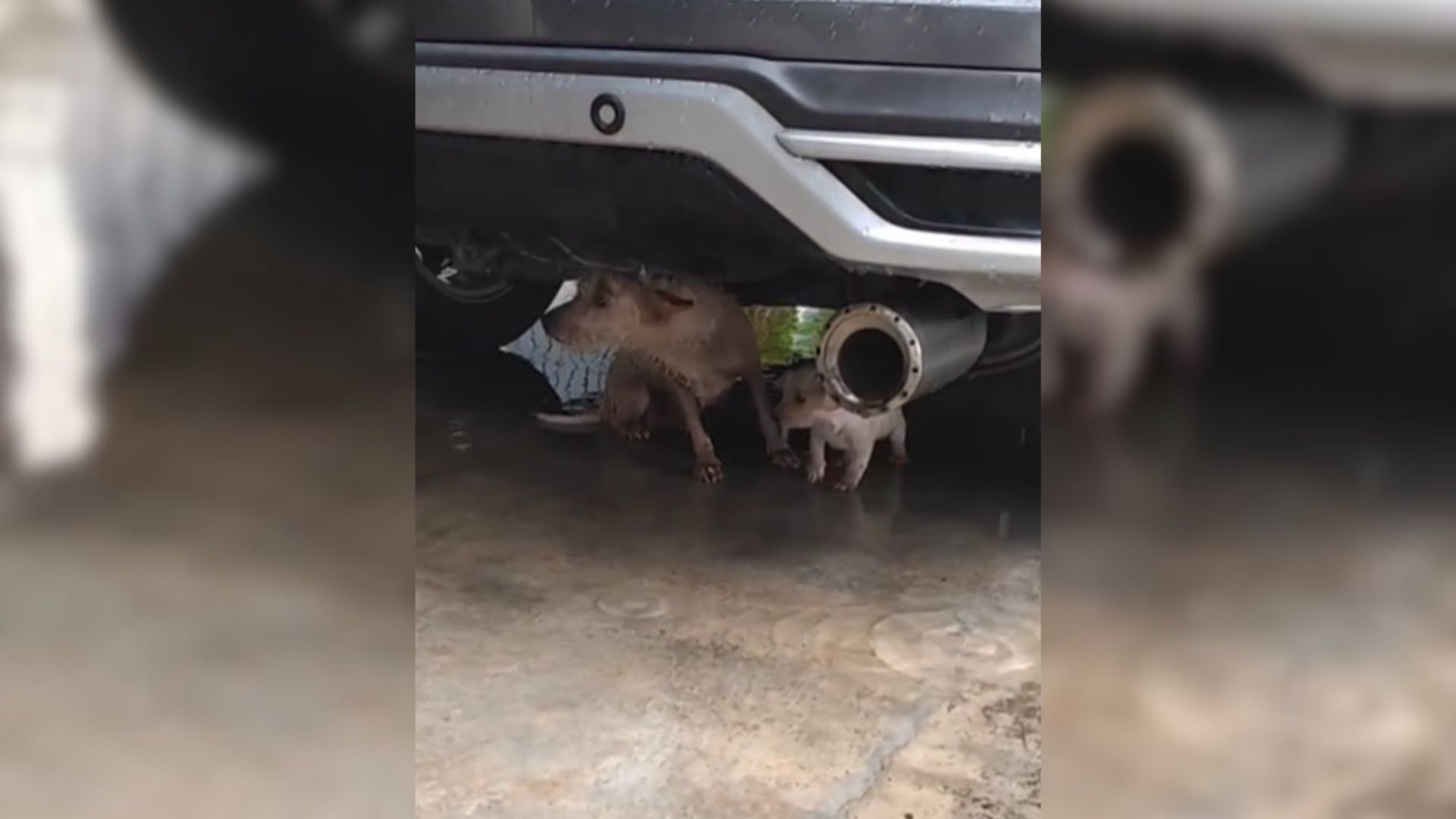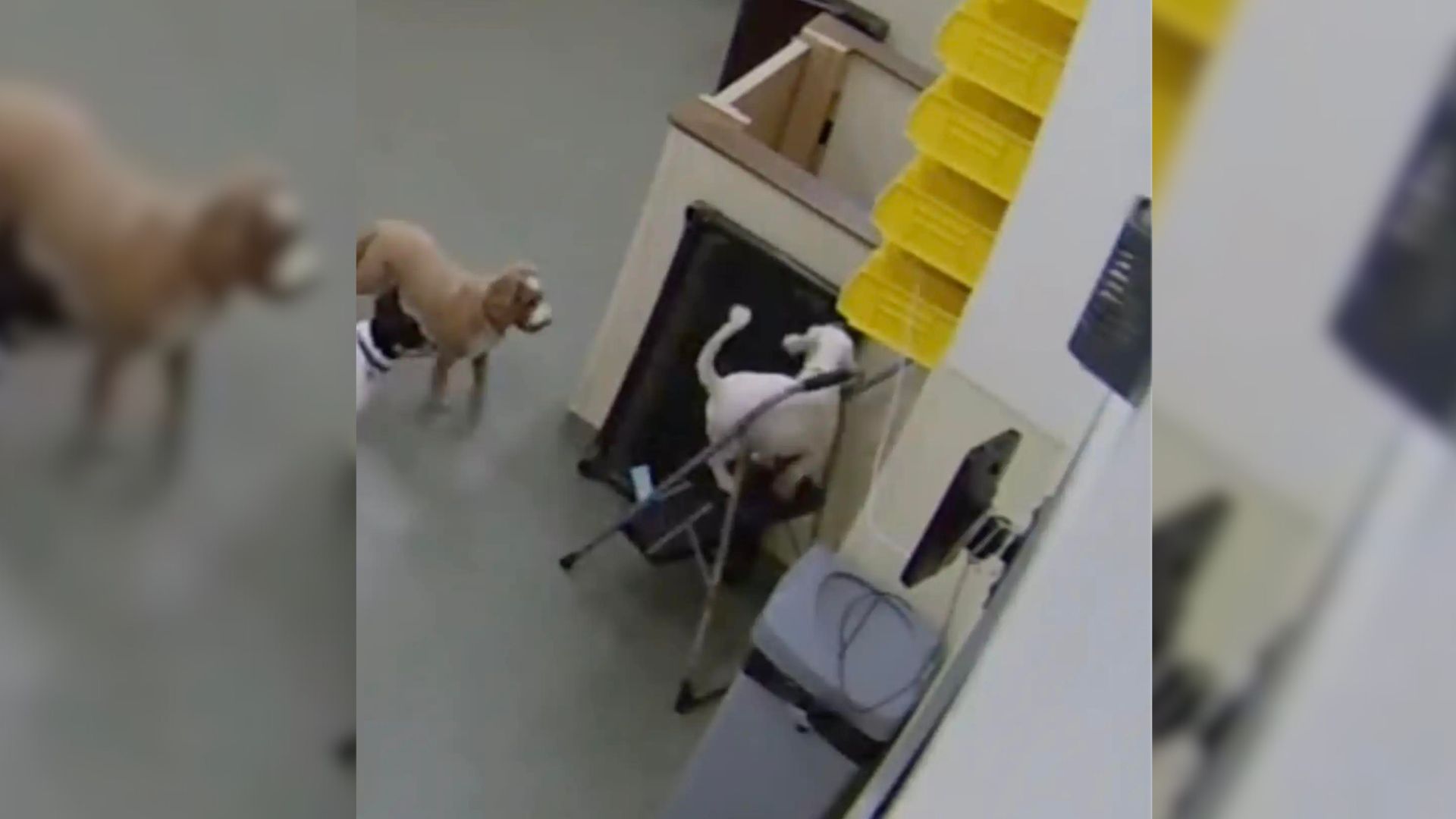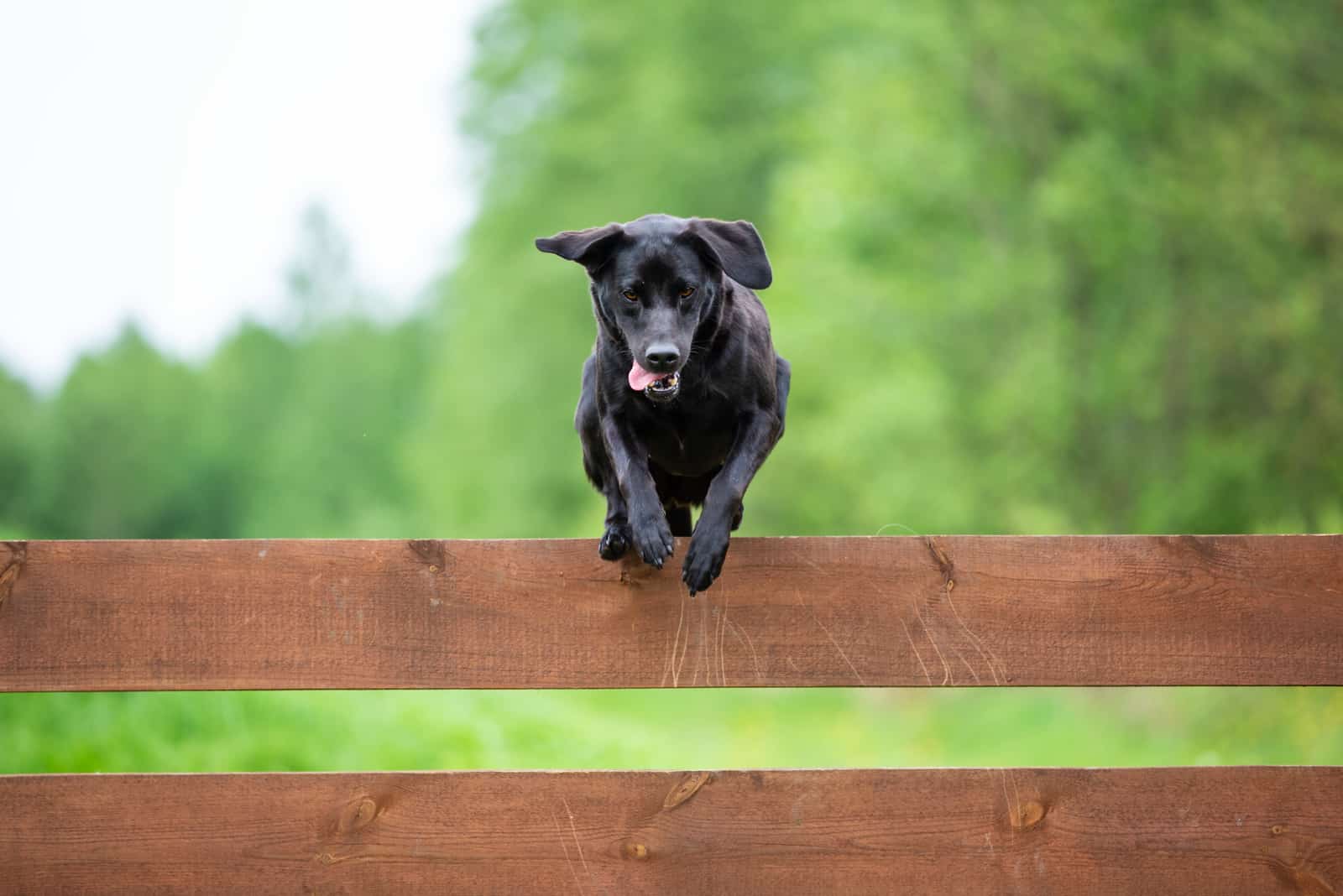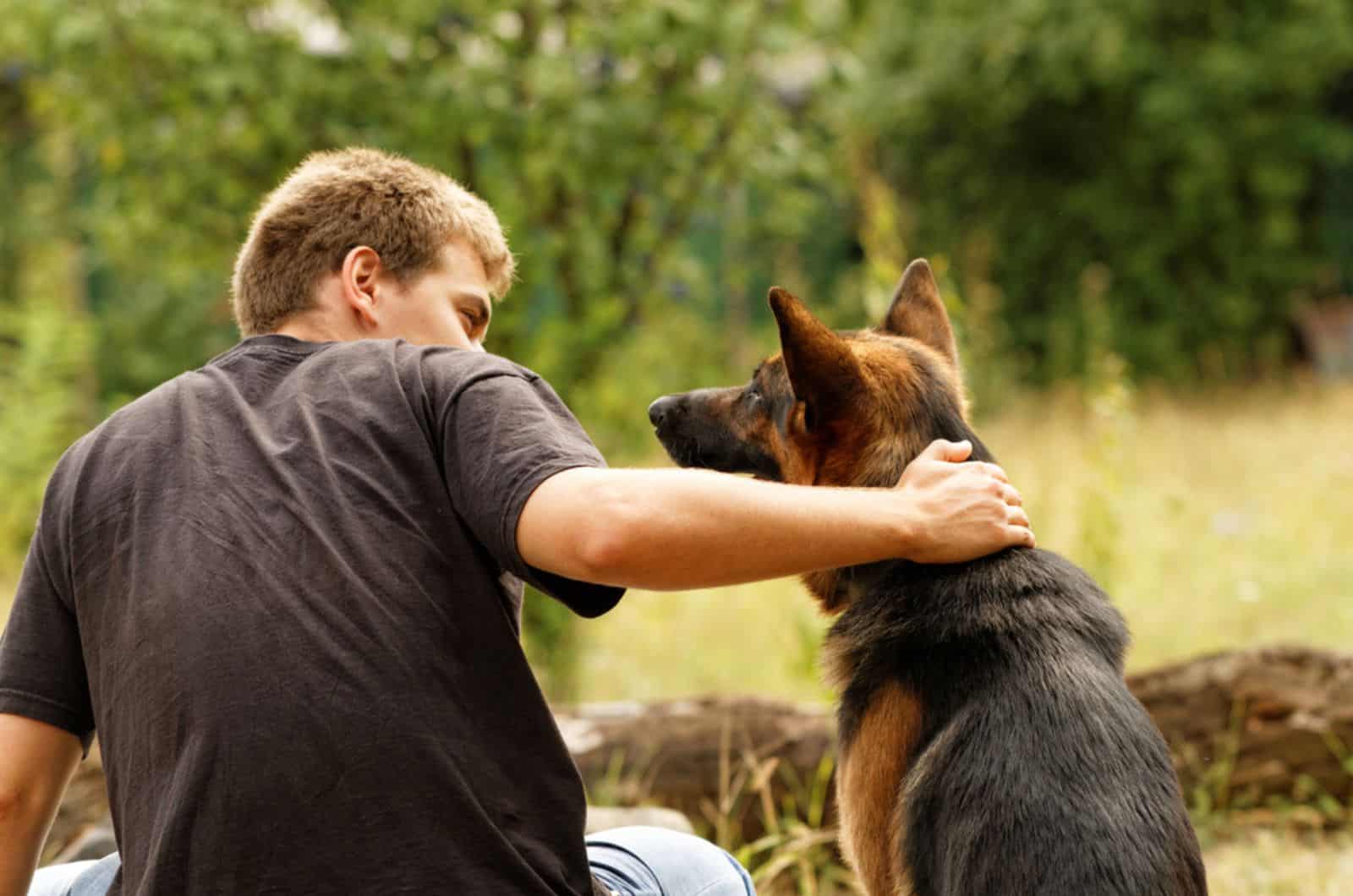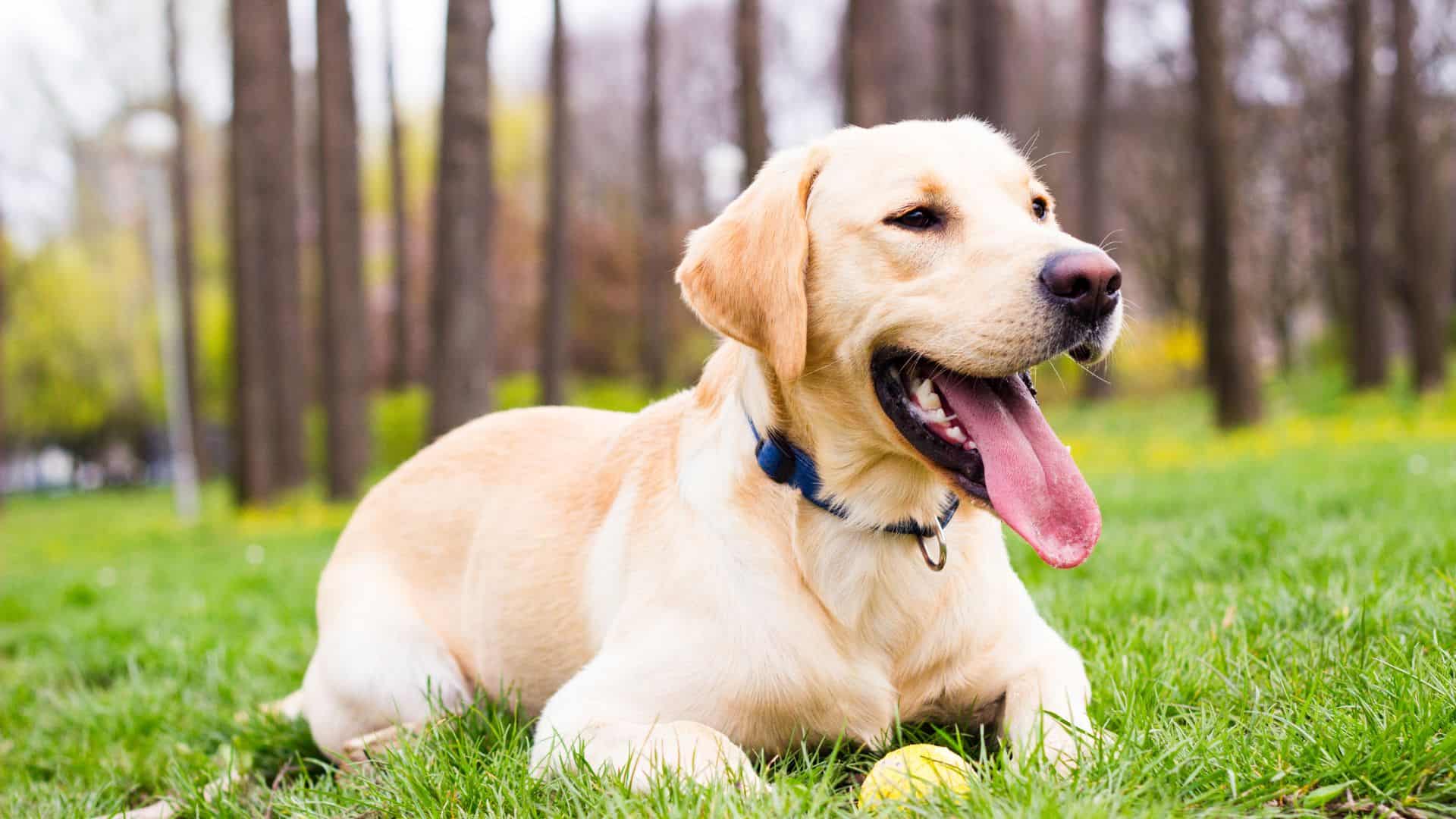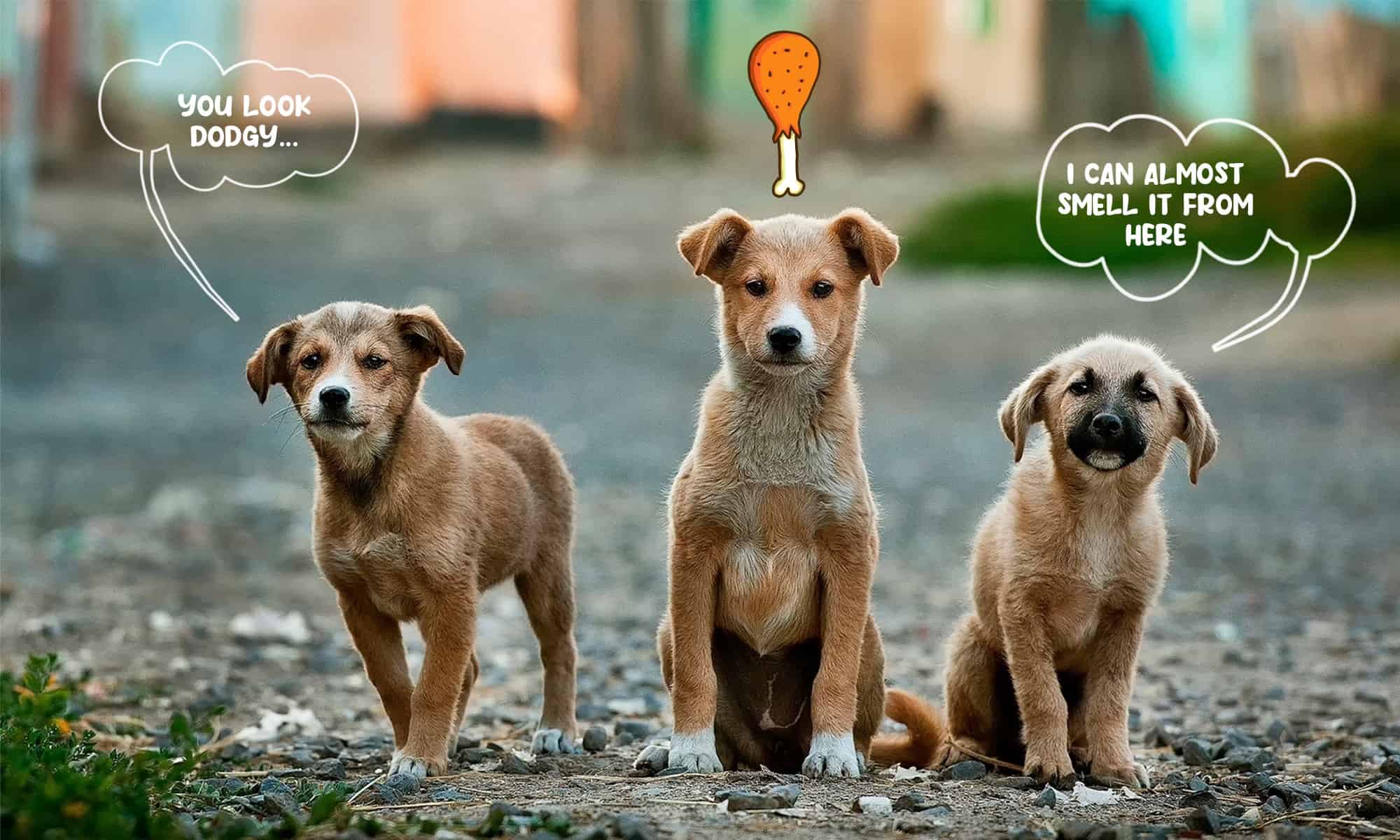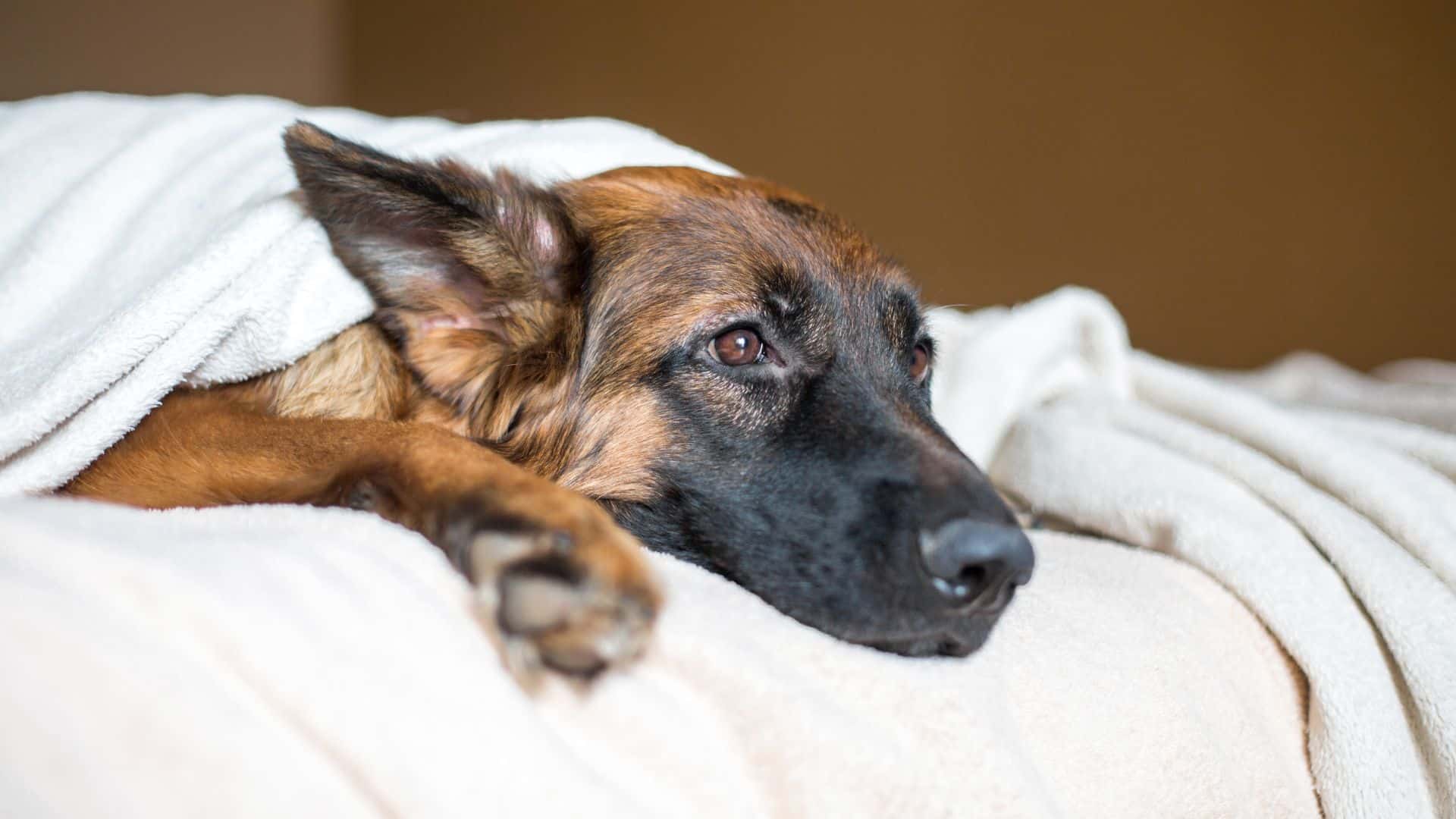Have you noticed your furry friend whining at night? It can be a worry for dog owners, as it’s not always obvious what the problem is. But don’t panic! You’ve come to the right place.
We’re going to go through the most common reasons and find the answer to the question, why do dogs cry at night?
Why Do Puppies Cry So Much At Night?
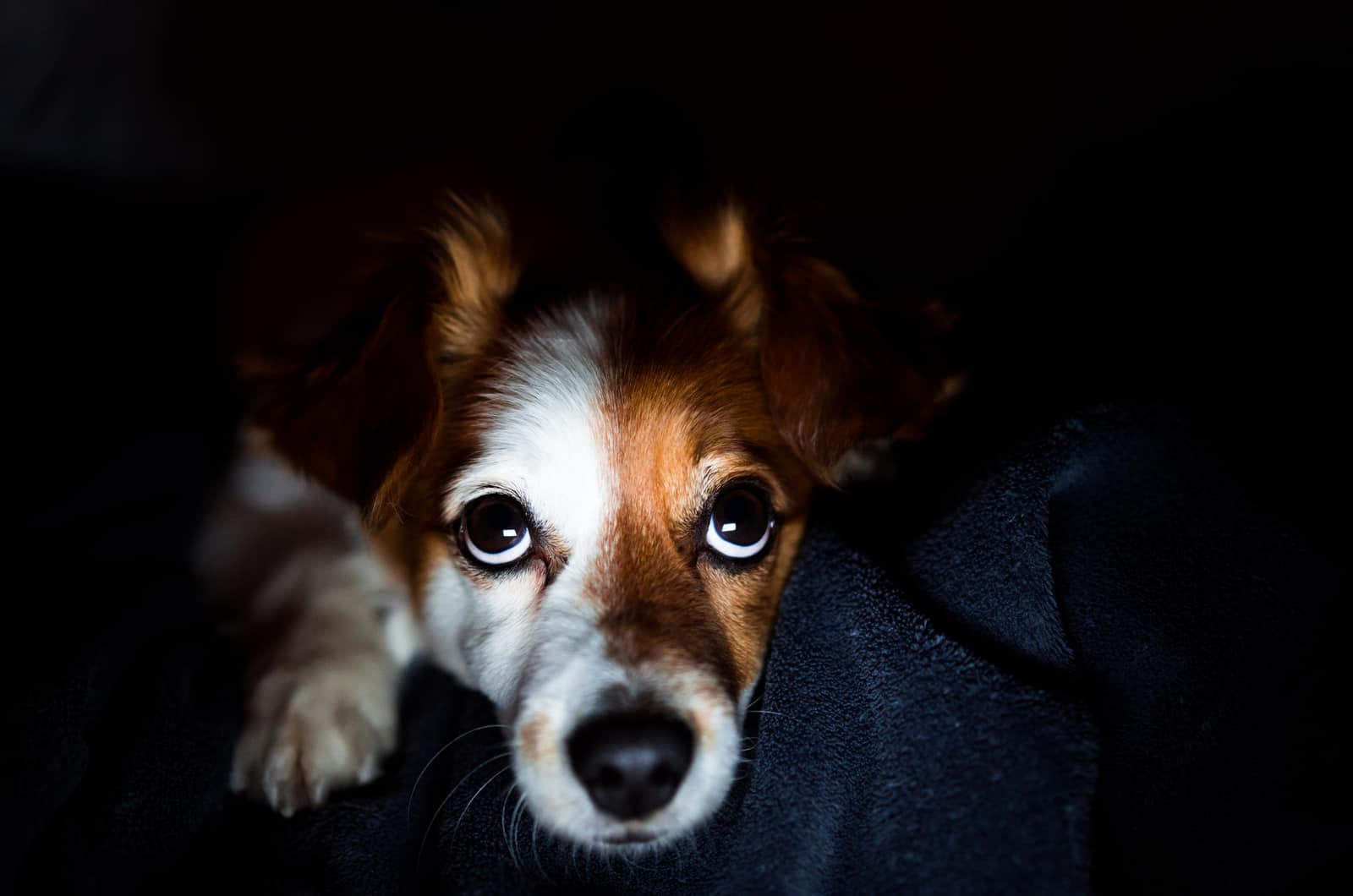
We’ll begin with puppies, as they are more likely to cry at night than adult dogs.
Why is this? There are several reasons!
Puppies develop quicker than humans and are ready to leave the litter between the ages of eight to twelve weeks. No responsible breeder ever lets the pups leave before they are at least eight weeks of age, but they should ideally be allowed to stay with their mother until they are twelve weeks old. By this time, the mother dog will have taught them some essential skills, and they will be ready for independence.
However, most young puppies will be introduced to new homes at eight weeks of age. You can make this experience as smooth, happy, and peaceful as you like, but this is still a major event in the little dog’s life, and they will have a lot to come to terms with.
Your new puppy will miss his mom and his littermates, at least for a while. It’s worse at night when the house is silent and everywhere is dark. You’ll hear your pup whimpering and whining, and it’s a safe bet that they are feeling lost and lonely.
Let’s pause here for a moment to get something straight: dogs don’t actually cry! At least, not in the sense that humans do. When we feel emotional, we produce tears, and we sob, sometimes aloud, sometimes silently. It affects the muscles in our face, which changes our appearance, making us look sad.
Dogs don’t do this. They have tear ducts, but these produce fluid to keep their eyes moist and clear. When they make a whining or whimpering noise, it isn’t crying in the sense that we understand it, but it still breaks our hearts!
Why do dogs cry at night? Your puppy is lonely and misses its mom. You can help by moving the dog bed close to yours at night and by having vigorous playtimes and exercise sessions during the day. A tired puppy is more likely to sleep through the night.
Another reason for puppies crying at night is that they need a bathroom break! These tiny pooches have tiny bladders to match. They also have a fast metabolism, so they may need to poop pretty soon after eating. You need to be patient during the potty training period. Don’t get cross with them if they have accidents, or you risk halting any progress you’ve made.
Make sure they go just before you settle them down for the night. This phase will soon pass, and your pup should sleep through without crying.
To help the process and generally improve your pup’s behavior, you could try crate training. This gets the pup used to being contained in a safe and comfortable space where they are less likely to feel anxiety. It’s great for potty training and during the teething process, which we’ll mention next.
See Also: Why Does My Dog Suddenly Hate His Crate? 14 Reasons And 11 Solutions
Why do dogs cry at night? Your pup might need to pee or poop!
Finally, in relation to puppies, there is another reason why pups cry in the middle of the night, and that’s when they are teething.
Dogs mostly teeth twice, once at around two weeks, and again between eight and twelve weeks. It’s an intense time that can be a real trial for the pup and the anxious owners.
You probably won’t experience the first period of teething, unless your pup was born at home. The second round of teething falls within the time when you’ll be bringing your pup home, which is one of the reasons the best breeders keep their pups until this has passed.
Your pup’s gums will be red, inflamed, and very sore. He’ll drool a lot and chew everything in sight. And he’ll cry at night because of the pain and irritation.
Why do dogs cry at night? It might be that your pup is teething! You can help him out by offering him cold carrots or frozen fruit, such as bananas or strawberries, to chew on. Frozen mini bagels can help, but make sure they are plain and don’t contain onion. You can even tie a wet towel into a knot and freeze it, then give it to your pup to chew on. All of these things can ease your pup’s gums.
Don’t worry, this phase will soon pass, and your pup will have his adult teeth.
Why Does My Dog Keep Crying At Night?

We’ve looked at puppies, now let’s examine some of the possible reasons why adult dogs cry at night.
Again, dogs don’t cry in the sense humans do. Whining and whimpering and even barking or howling can be a sign that your pooch is unhappy about something.
First, you need to rule out the obvious. Does your dog need to go to the bathroom? Even adult dogs sometimes need to go in the night. Even so, if this happens frequently, then you need to change their routine. Try taking them out to do their business just before you settle them down for the night. If this doesn’t work, you should get your vet to check them over.
If potty breaks aren’t an issue, then you need to consider other causes.
One of the main reasons why dogs cry at night is because they need to be near you. Separation anxiety is a big thing for dogs. They are built for human companionship, forming exceptionally strong bonds with their owners and families. When they are deprived of this companionship, they become anxious and unhappy.
It’s such a serious problem that it can cause other behavioral issues, such as destructive behavior when they are left alone. They may forget their potty training or bark and howl excessively. They’ll shake, sometimes uncontrollably, whining and whimpering, pacing around in a repeated pattern.
If you recognize this behavior, then your pooch might be missing you when you’re not around, and they fear that you’ll be leaving them again soon. It’s a sort of panic attack, and it makes them act out of character. Dogs whine at night because they can’t see you and believe that they’ve been ‘abandoned’ again.
Why do dogs cry at night? It could be separation anxiety, and your dog really doesn’t want you to leave them home alone.
The good news is that there several possible solutions:
• Make sure your dog has enough exercise and mental stimulation. If they use up all their energy, they’re more likely to be happy and rested and will sleep through.
• Don’t make a big deal out of saying goodbye to your dog when leaving home, and ignore them for five minutes when you return. It might make you sad, but it reduces the intensity around these times and helps your dog accept that it is normal.
• Desensitize your dog to certain actions. They know you’re about to leave when you pick up your car keys or put on your jacket or shoes. Mix these actions up with others without leaving the house, and your pooch will stop connecting them with you leaving them home alone.
• Give them toys and puzzles to keep them occupied while you’re gone. Puzzles with food inside are an excellent idea.
• If they cry at night, and you suspect separation anxiety is to blame, reassure them by moving their dog bed close to yours.
• In extreme cases, you may need the advice of an animal behaviorist or get your vet to prescribe calming medication.
Finally, we need to look into the possibility of medical problems as a cause of dogs crying at night.
It doesn’t necessarily have to be something serious. Despite being omnivores, dogs have very sensitive systems. A lot of dogs suffer from food intolerance or allergies, especially anything containing dairy products. A simple change of diet, swapping one brand of dog food for another, can upset their delicate system.
It’s surprising, considering the gross things that they are prepared to eat at times, but you really need to watch their diet carefully.
If it’s not to do with this, then you need to check whether your doggy friend is in pain. They may have hurt themselves during the day, perhaps during a vigorous run or energetic playtime, and now they are finding it uncomfortable to lie down. The pain might even be a symptom of sickness, so you’ll need to watch for other symptoms.
Either way, you should get them to the vet as soon as possible to get them checked out.
Why does my dog cry at night? He might have tummy pains from eating too much too quickly or is having a bad reaction to his food. He could be suffering from a disease.
One other category we should explore is when a new dog arrives in a home, perhaps from a rescue or dog shelter. It can be daunting for them as they will be in an unfamiliar place. They may cry at night because they need time to settle in. This behavior should start to tail off after a while, but it generally takes about three weeks for a dog to feel fully at home.
The best way to deal with this is to start before the dog arrives. Planning is everything!
Make sure that everyone in the household knows the rules. When you collect the dog, everyone should be calm. Yes, it’s an exciting time, but you need to refrain from getting the dog worked up. When you get home, keep the dog on a leash and take a tour of the house without talking or making eye contact. If you need to stop her from doing something, snap your fingers or make a tsk sound, but don’t talk.
Finally, introduce her to her bed, and let her off the leash. The bed should be in a quiet place away from the bustle of the home. Allow her to settle and get used to the space. Although it might be hard, try to get the whole family to stay calm and ignore the dog. If she joins you, then you can acknowledge her, but keep any affection to a minimum at this stage.
If she sleeps through without any fuss, then you can gradually increase the level of contact and affection the next night and so on. However, if she cries at night, then you could try sitting by her bed for a while until she sleeps again.
Why Does My Old Dog Cry At Night?

Leading on from the last section, older dogs face an increased risk of suffering from sickness and disease, and this will cause them to cry at night in some cases.
Senior dogs are prone to cognitive decline, as their brains receive less oxygen and the brain cells start to die off. Dogs tend to live longer these days, which makes them prone to canine dementia. This causes disorientation, which upsets them as they forget where they are. When this happens at night, they will whine or howl because they are so upset.
The longer dogs live, the more prone they are to tumors, joint pain, deafness, and blindness. All of these will cause them pain and distress to some degree, and they will whine, especially at night. As they age, you will find that they don’t like to lie down in certain positions because it is no longer comfortable.
Why does my dog cry at night? Because they are old, in pain, and distressed due to chronic disease and dementia.
The best thing to do is to speak to your vet. They will do their best to guide you and prescribe treatment to ease your dog’s suffering.
What Can I Do To Stop My Dog Crying At Night?
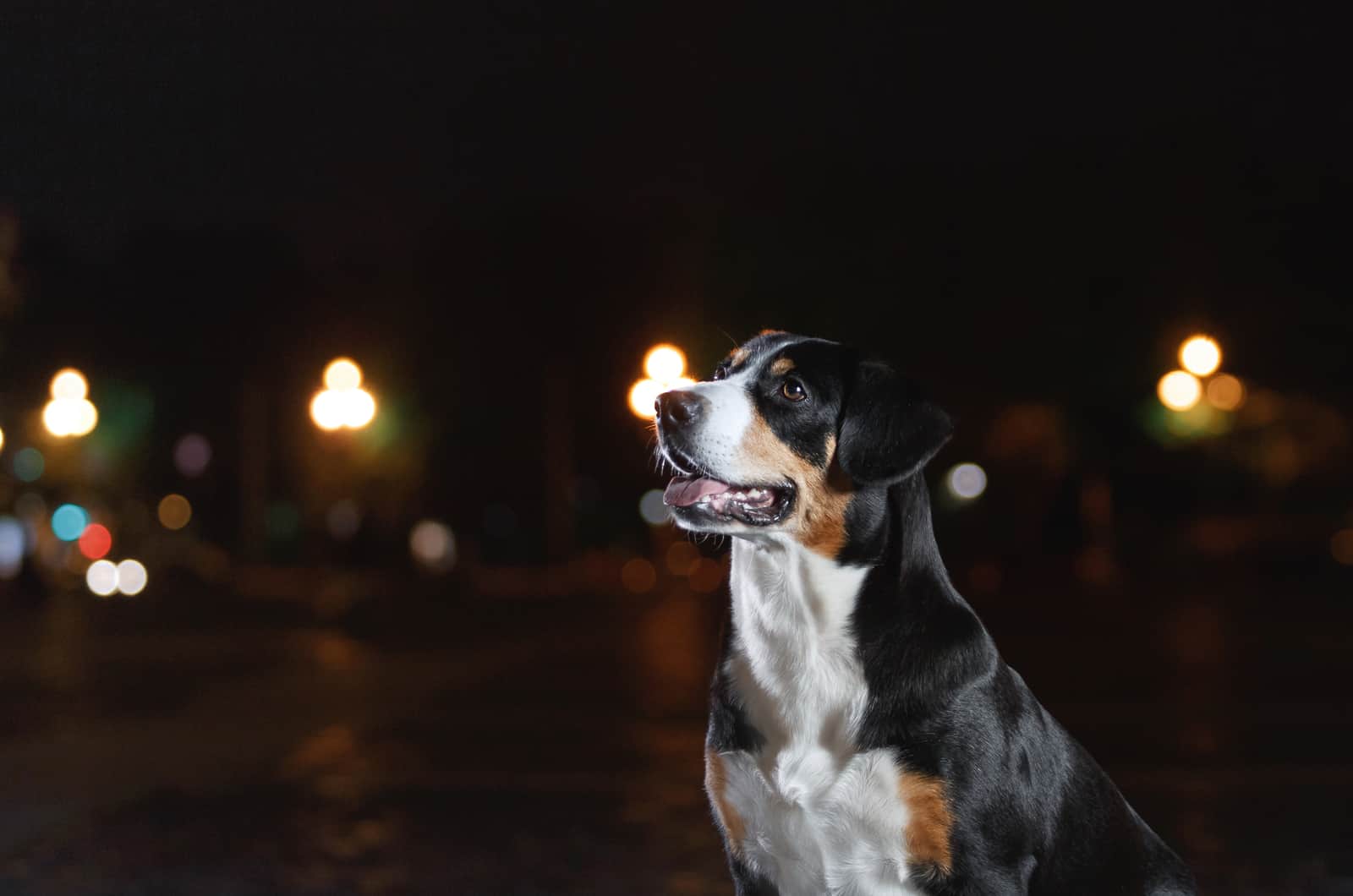
It all depends on the cause! We’ve covered most of the common reasons and possible solutions here, but we’ll break them down into bullet points to help get the message across:
• Puppies – they miss their mom and siblings. Everything is new and scary. They may be teething or even have growing pains. They might need the bathroom! Help them settle in by spending as much time bonding with them as you can. Some breeders provide a soft toy or blanket with the mom and siblings’ scent on it, which helps. Use crate training to give them a safe, comfortable space. This will also help with potty training and stop them from chewing stuff in the home when teething.
• Separation anxiety – your dog adores you and never likes to be away from your side. This can lead to problems, and they’ll cry at night when they don’t feel you nearby. This takes some work, but you should try to desensitize them to your actions and make it feel normal for you to be away for a few hours. Don’t draw attention to yourself when leaving, and wait five minutes before you cuddle them when you arrive home. Always reward them when they do well.
• Medical problems – allergies, food intolerance, overeating, and sickness can all upset your dog’s sleeping pattern, and they will probably let you know by whining. It’s essential to check for any symptoms that will give you a clue as to what’s wrong.
• Older dogs – sadly, senior dogs are vulnerable to many different illnesses, especially arthritis, cancer, and dementia. Any of these may cause your furry friend pain and distress, and they will cry at night. You need to consult your vet and pet care specialists to ensure that everything is done to ease their suffering, even if this eventually means that they need to be put to sleep.
Final Thoughts

Photo from: @_labrador_lovers_ig
We’ve learned that dogs don’t actually cry like humans. They don’t shed tears as we do, and they don’t sob, though it certainly sounds like it sometimes! As far as we know, humans are the only species that cries when we are moved by our emotions.
But that isn’t much comfort when your fur baby is whimpering or whining in the night.
Dogs can’t communicate like us, so we need to learn to read their body language and look for other signs. We need to become experts at analyzing dog behavior.
We should also acknowledge that some breeds are better at coping with certain conditions than others. Most dogs howl, but for different reasons. Some do it because they are lonely. Others because they are bored. Huskies howl all the time rather than bark. Other dogs howl because they hear other dogs doing likewise. It’s a natural instinct, but it’s stronger in some breeds than others.
You might wonder how this is relevant to our question, why do dogs cry at night?
Because all dogs are different! They share common traits, but they are stronger in some breeds and weaker in others. Some dogs are happy to stay in a kennel in the yard. Others would hate it. Some take to dog training exceptionally well, while others make it a real headache. Some dogs are fine being left alone for hours, while others take it badly.
Your job is to get to know your dog and understand his body language, quirks, barks, and whines. We’ve given you a few pointers as to why your dog might be crying at night, so you can add this to what you’ve learned about your pooch. Hopefully, you’ll be able to use this to discover the reason and find a solution.
It’s only natural for dog lovers to worry, but in most cases, there’s a way to soothe your dog’s pain, fears, anxiety, or discomfort, and you’ll soon be enjoying a peaceful night’s sleep.
Read Next:
• Why Do Dogs Pant In The Car: 10 Causes & Solutions You Must Know
• Why Does My Dog Cry When Carrying Toys? – 12 Reasons and Solutions
• Why Do Dogs Like Sticks? 10 Logical Reasons Why

